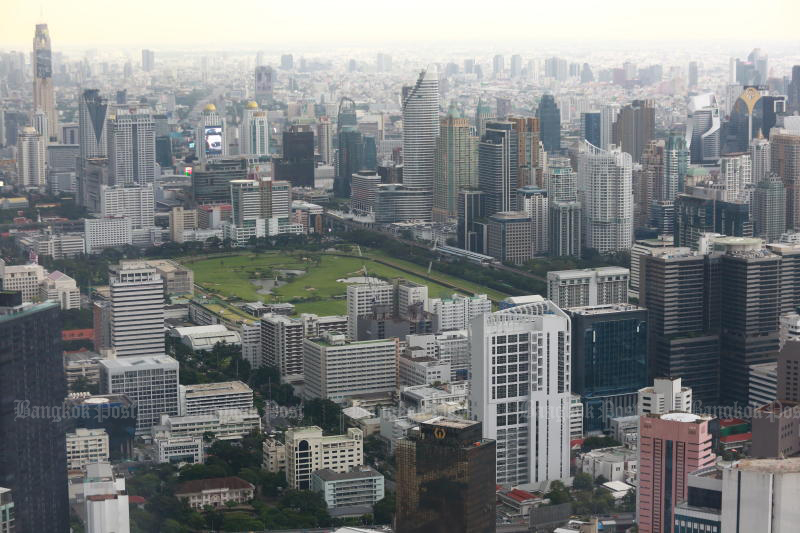
Academics, the private sector and non-governmental organisations have expressed mixed reactions to the government's plan to allow foreigners to hold land ownership of one rai for residential purposes.
Government spokesman Thanakorn Wangboonkongchana said the Land Department is drafting the regulations to allow the land ownership. The policy is in line with the government's plan to woo affluent foreigners for lengthy stays to shore up the economy.
He said foreigners who are eligible must meet criteria set by the Interior Ministry and must invest at least 40 million baht for at least three years within designated sectors of the economy.
He said the government aims to attract four groups of foreigners -- those with enormous wealth, wealthy pensioners, those who want to work from Thailand, and highly skilled professionals.
Over a five-year period from this year through 2026, the government hopes to attract more than a million qualified people to Thailand. About 1 trillion baht is estimated to be injected into the economy with an 800 billion baht increase in investments and another 270 billion baht in revenue collection.
In January this year, the cabinet approved rules to woo affluent foreigners for lengthy stays with the aim to boost the economy and investment in the country.
The new regulations were jointly proposed by the Interior Ministry and the Labour Ministry with the former offering long-term resident (LTR) visas to applicants and the latter dealing with work permit facilitation.
The Interior Ministry's package, which was published in Royal Gazette on June 2, will take effect in September this year.
Sanan Angubolkul, chairman of the Thai Chamber of Commerce, said the long-term resident visa will be a boon to the construction and real estate development sector.
The sector's annual value stands at 800-900 billion baht and the value is expected to increase two-fold, making up for some 8%-9% of GDP, he said. If 100,000 foreigners are lured by the scheme, they will generate investments worth at least 4 trillion baht.
Mr Sanan suggested that a few requirements should be added; foreigners with the privilege must purchase first-hand land and property only and resell it to Thai nationals only and purchases must be made in designated zones.
Nipon Puapongsakorn, a distinguished fellow at the Thailand Development Research Institute (TDRI), said the country does not lack funds, but a comprehensive policy to shore up investor confidence.
Vietnam has more free trade agreements than Thailand, which gives investors a wider market, he said. Investors also face the "cost of doing business" due to numerous regulations, not to mention that Thailand has a shortage of skilled labour.
"Foreign capital... so what? It's short-term. The government must create an investment environment and improve laws to make investors feel it is worth doing business here," he argued.
Pornpana Kuaycharoen, Founder and Coordinator of Land Watch Thai, said she totally disagreed with the policy.
"I would like to turn the question around. Who really benefits from this policy? It's rich people. Those who already own the majority of land in the country will make a profit from selling it to investors and make the problem of land ownership inequality in Thailand even worse," Ms Pornpana said.
"As a lot of Thai people still own no land, why should we allow foreign investors to take more of the country's land?"
Somphop Manarangsan, president of Panyapiwat Institute of Technology, said the government must ensure the privileges extended to foreigners will bring long-term benefits such as technological development and innovations. He said mobilising foreign investments using land ownership as an incentive is nothing new in other countries.
"Due to the Ukraine-Russia war, it may attract some wealthy people, retirees or start-up firms. If it can have a multiplier effect in the economy, it should proceed," he said.
However, he stressed that Thais should not be hit by rising land prices.